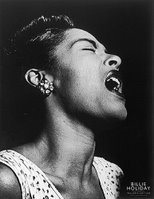
There must be something genetically inscribed in
writers that compels a great many of them into
deep bottom-of-the-sock drawr confessions; the aim is to fill the page with evidence, it seems, of true authenticity of being, that what they write is more than mere twists of virtuosity culled from mastery of the rhyming dictionary, and definitely more than clever tweakings and extensions of formula metaphors, allusions and attendant devices.
I exist, I bleed, I am a depressed, these things, these events have made me sad and sullen and all these years of letting them mature like saving bonds in the vaults of venal resentment have given me a gravity that will weight my words and make the reader slip into a morose empathy as my spare , depressed renderings makes all the music in their house become mute, with only my flat, inflectionless voice murmuring like coffee on slow boil. Read me, feel me, envy my legitimacy of being, I am real, I am profound, I am a writer...
These are the sort of people you inch away from in actual circumstances--the sensation of being sucked into the black hole of their self-involvement is physically tangible, I think--and yet we're compelled to make excuses for what amounts to ceaseless whining and scab-picking, and for perverse reasons read them. It might be the same phenomenon as drivers slowing down to gawk at a bad road accident.
The first problem is that confession of this sort, which the unfair characterization above describes, is not clarification but only cleverness, and rather than seek the end of agitated consciousness through understanding and transcendence, there is rather the hope to continue as one has, writing yet more revelations
(or, rather, reworking images and situations previously described and tested on readers),and it's a matter of economic survival. No one wants to rid themselves of that thing that allows them to riff onward endlessly; one does not want to blow their gig entirely by publicly revealing the answer to their own problems. The problem is subject matter, after all, and a poet needs something to write about, or exploit. It amounts to living in a rut and having it decorated.
"Twins", by Debra Nystrom, is evidence of an old complaint frequently stated in these parts, being a routine bit of confessional prose one might happen across if they sample the epidemic of slight and overwritten memoirs, only formatted into
couplets. The use of couplets, stanzas, the spaces between the stanzas, is to offer a clue that there is about to be an associative leap in the offing, some fresh idea from choice foreshadowing, but our patience is rewarded with some frayed connections. In couplet form, Nystrom's stream of connections is less a seamless stream than it is an impatient butcher forcing a hank of ham through a meat grinder.
It sounds forced, and while these compact itemization might be forgivable in a long winded paragraph, excused, I suppose, as the heightened awareness of someone pluming the depths of their beings for truths defying conventional wisdoms, the "poetic" line breaks here serve only to draw attention to the awkwardness and sheer clumsiness of some of her sentences:
--my mom a real twin whose twin, shipped out
to Asia with the navy, had let her fall
to a rip-tide marriage along with me, little
dead-weight, little buoy
and
--music twisting out of an LSD
researcher's stereo like toothpaste;
You groan, you say "ouch", you reach for the phone to call someone. These flourishes read like afterthoughts, as if inserted into Nystrom's
prose diction when she hypothetically decided to change a notebook entry into a poem, written and applied to make the passage "poetic". Such effort, if so, is only window dressing, and the result here is like a sticky patch of dried ice cream one might step on crossing a hard wood floor.






